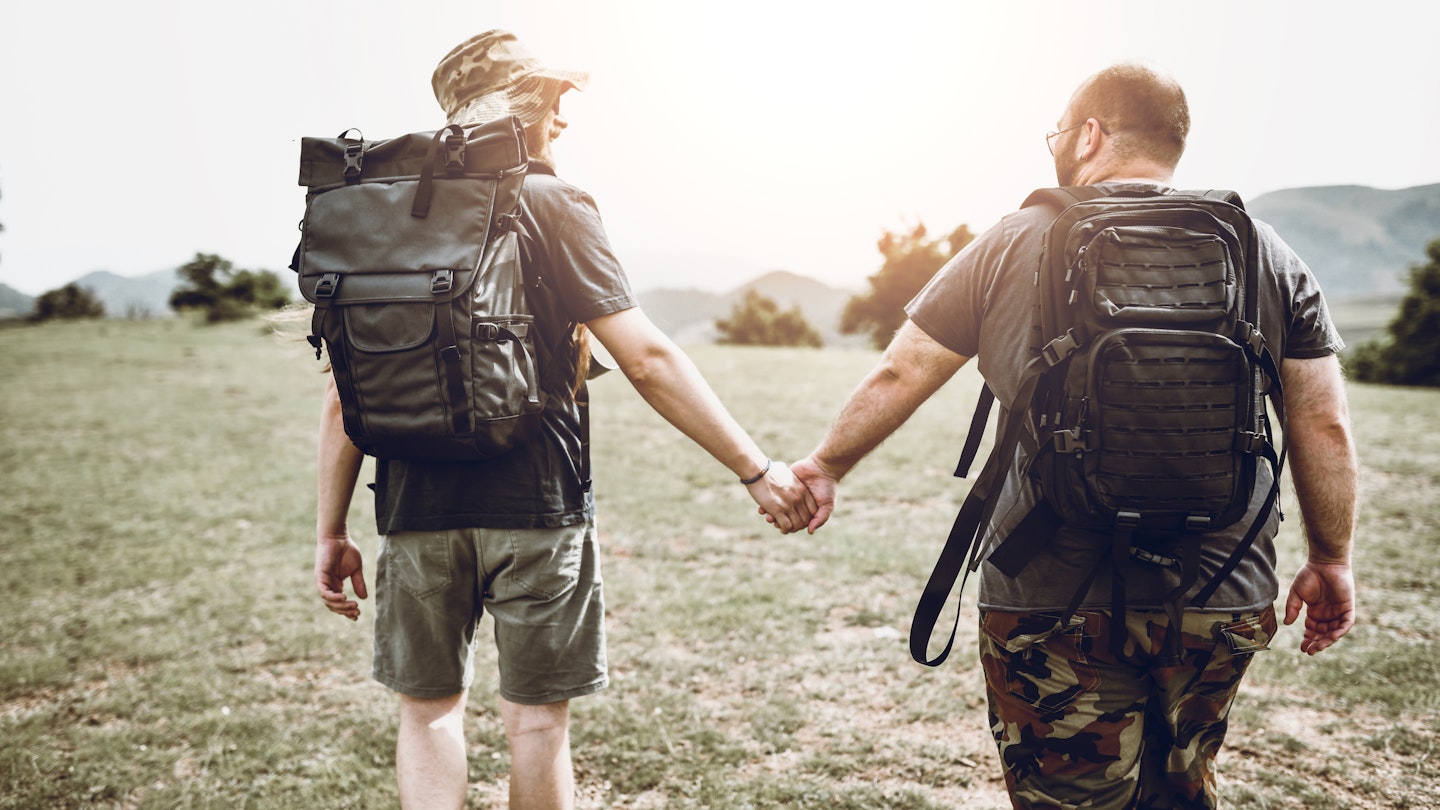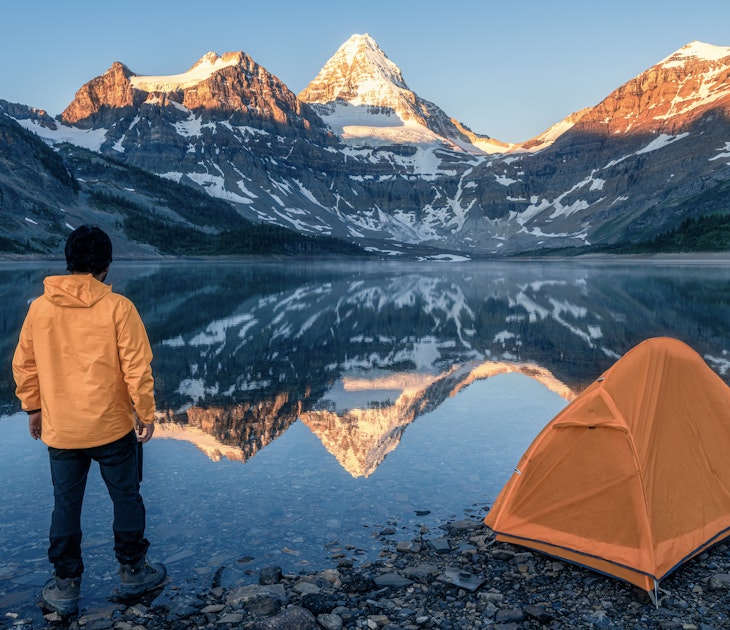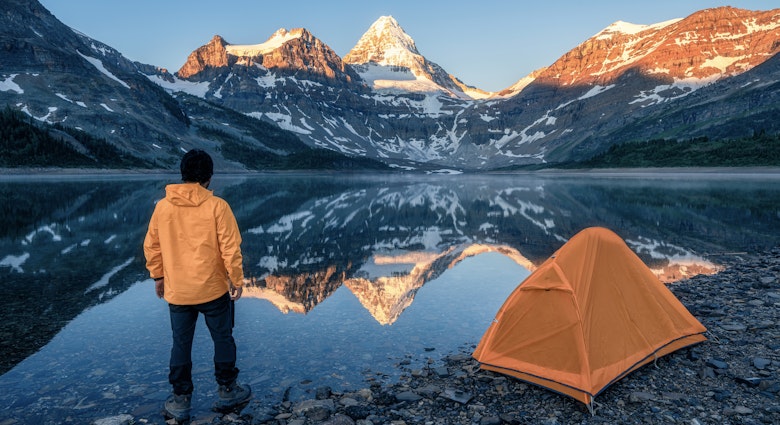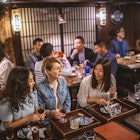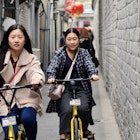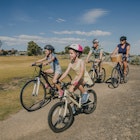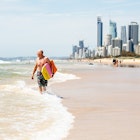When Lonely Planet asked me to write about my experiences as an openly gay traveler and journalist, it was one of the hardest assignments I’ve ever accepted. What should I talk about – the incredible queer cultures I’ve been fortunate enough to experience across the world? The professional challenges of being openly gay in a world where in many countries that’s an offence – even a capital one? And how on Earth, quite literally, can I sum it up in anything less than a novella?

The gay travel stereotypes
Let’s start with a throwaway visual from a movie. In the seminal 1995 film To Wong Foo, Thanks for Everything! Julie Newmar, a backcountry sheriff is searching for the three drag queen protagonists, and he writes out a list titled “Places for Homos”. Number three on the list – after “flower shops” and “ballet schools” – is “flight attendants’ lounges”. The story of passenger aviation is intertwined with gay men, most famously gay flight attendants, stereotypically swishing their way through the skies with their gal pals, a guy in every (air)port, footloose, fancy free and happy. As one of the relatively few openly gay aviation journalists, and one who specialises in the passenger experience – what we all see when we travel – the way this particular quirk of history has evolved, as Phil Tiemeyer’s excellent book Plane Queer tells it, intrigues me. Flight attendants, and indeed aviation, are more complex than that.
Across the world, cabin crew are one of the few jobs that have always, as Wong Foo shows, drawn gay men. Indeed, I came of age in the 1990s, when the only gay people on TV were hairdressers, drag queens, flight attendants and people dying of AIDS. Right now, in the shadow of another pandemic, my gay friends of a similar age and I talk frequently about how formative that particular experience was in how we’re reacting to COVID-19, and how much it affected our perspective.
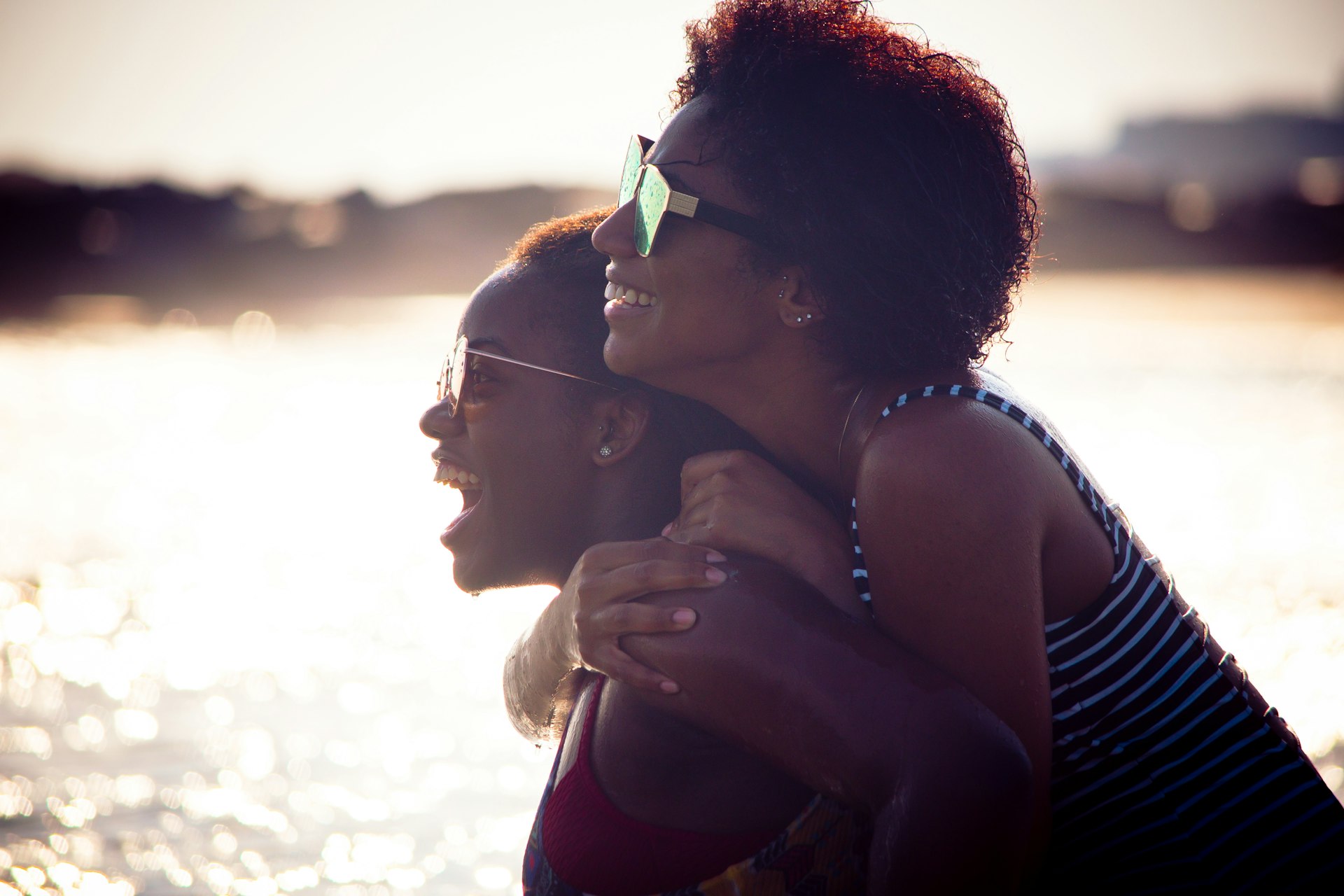
Many countries don't accept our right to exist
It takes a certain amount of defiance to live in the face of death, as many folks are finding out for the first time at the moment. It takes defiance to live as an openly gay person in a world where many people and many countries don’t accept our right to exist. In more than a dozen countries, gay people can still be put to death for spending a night with our partners, arrested for holding hands, prosecuted for gathering with other people like us, jailed for even discussing our lives – let alone being attacked by mobs for simply being who we are.
I identify as gay and queer, and I reclaim the word “queer” along with others to describe a wider sense of identity, in the understanding that there is a generation older than me, of gay men in particular, who don’t like the word, having had it screamed at them by police as they were arrested and brutalized. (I finally understood that perspective at a bar in Gran Canaria talking to a couple of gay elders who visibly flinched when I used the term. Travel broadens the mind, even for those of us who already consider our minds fairly broad.)
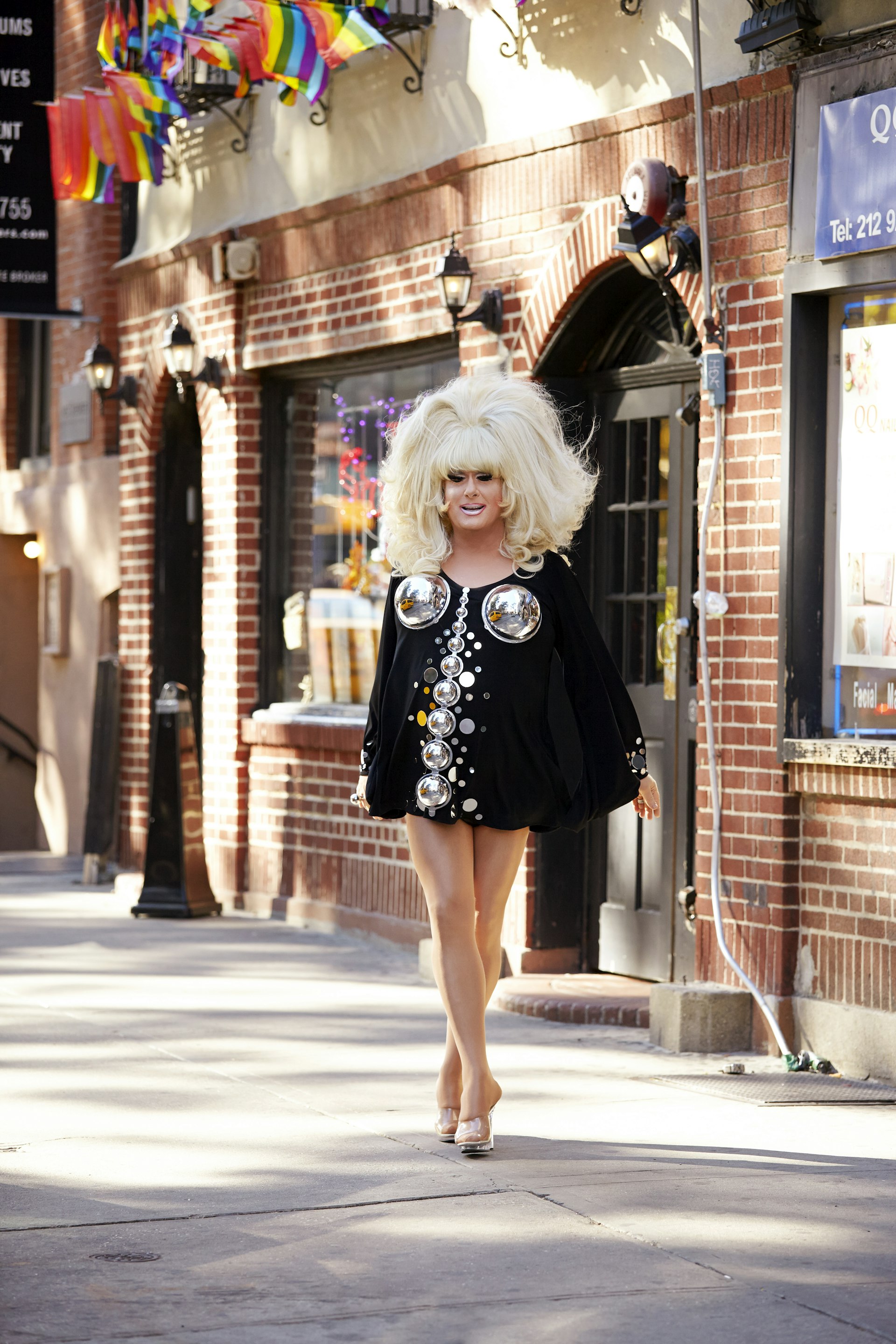
Diverse LGBTIQA+ communities across the world
Let me be the first to highlight that the LGBTIQA+ community is as diverse as its members, and I can only speak to my experience as a white, cisgender, university-educated thirty-something gay man living in western Europe, which gives me a particular perspective on the world.
Enjoying incredible drag performances in Singapore, the search for the perfect tiny gay bar in Shinjuku, going for a drink in the Stonewall, letting my purple hair down in gayborhoods from the Marais to the Castro, browsing queer bookstores from Toronto to Melbourne, dancing the night away among fellow queers from Beijing to Bucharest… and chatting in the galleys of aircraft worldwide: getting to experience the amazing flavor of queer life across the world is a joy and a privilege.
It’s also a responsibility: as a journalist with a public profile, I often avoid posting about visiting gay venues and queer spaces on social media in countries where LGBTIQA+ people are still targeted for harassment, violence and oppression by governments or society. I don’t want to be the one to bring down a raid on a drag bar by posting some pictures on Twitter.
Being an openly gay traveler
Being openly gay in this world is also, at times, a challenge. I grew up in the US in the 1980s when the Reagan White House laughed as it perpetuated, through failure to act, one of the great unrecognised genocides of the last century: AIDS. I also grew up in the UK in the 1980s when the Thatcher Government instituted laws that prevented schools from talking about gay people and local governments from funding services for us, including AIDS services.
We still live in a world where describing the delayed response to the HIV-AIDS epidemic – where failure to fund treatments for a disease that was first called Gay-Related Immune Deficiency was widespread during a time where it was seen as a “gay disease” — as a genocide is controversial. A world where in many countries a simple once-daily medication that almost entirely eliminates the possibility of becoming infected with HIV, the PrEP medication Truvada, is not routinely funded, and where crossing borders with PrEP can lead to invasive questions, targeted harassment, deportation and worse.
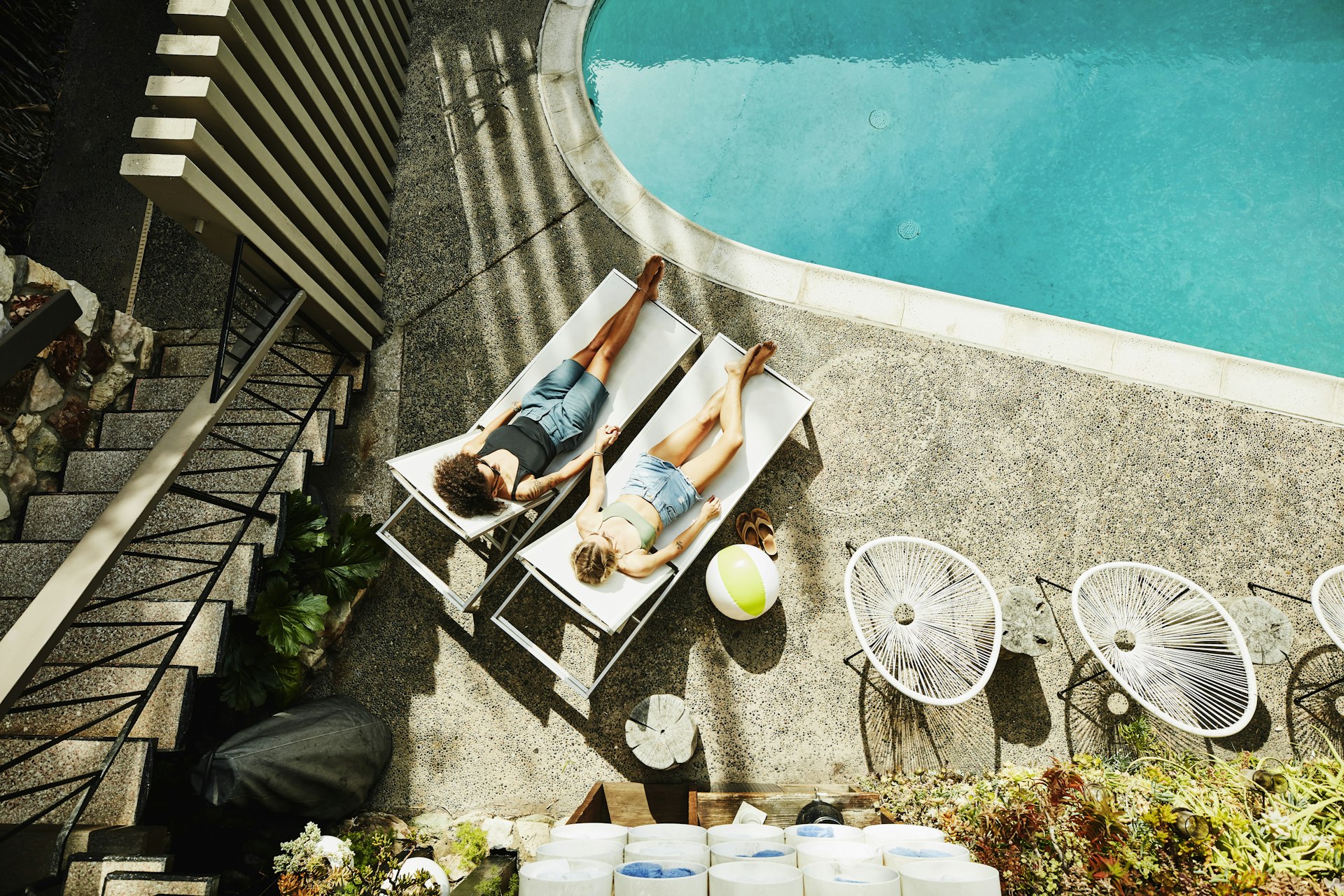
We live in a world where I’m expected to travel to and via some of the dozens of countries where I could be put to death, jailed, tortured or extrajudicially killed for being gay without a second thought. A world where never, in over ten years, has an editor asked whether I feel safe traveling to or through any country.
We live in a world where, prior to leaving for a trip to or via an even larger list of countries, I need to comb through my phone for anything gay that could cause problems. Obviously I remove dating apps – do straight people ever remove Tinder when they travel? – but I also have to check through everything from text messages to photos to WhatsApp to Dropbox to Twitter to my phone’s online photo storage to delete anything “incriminating”, not just for me but for others.
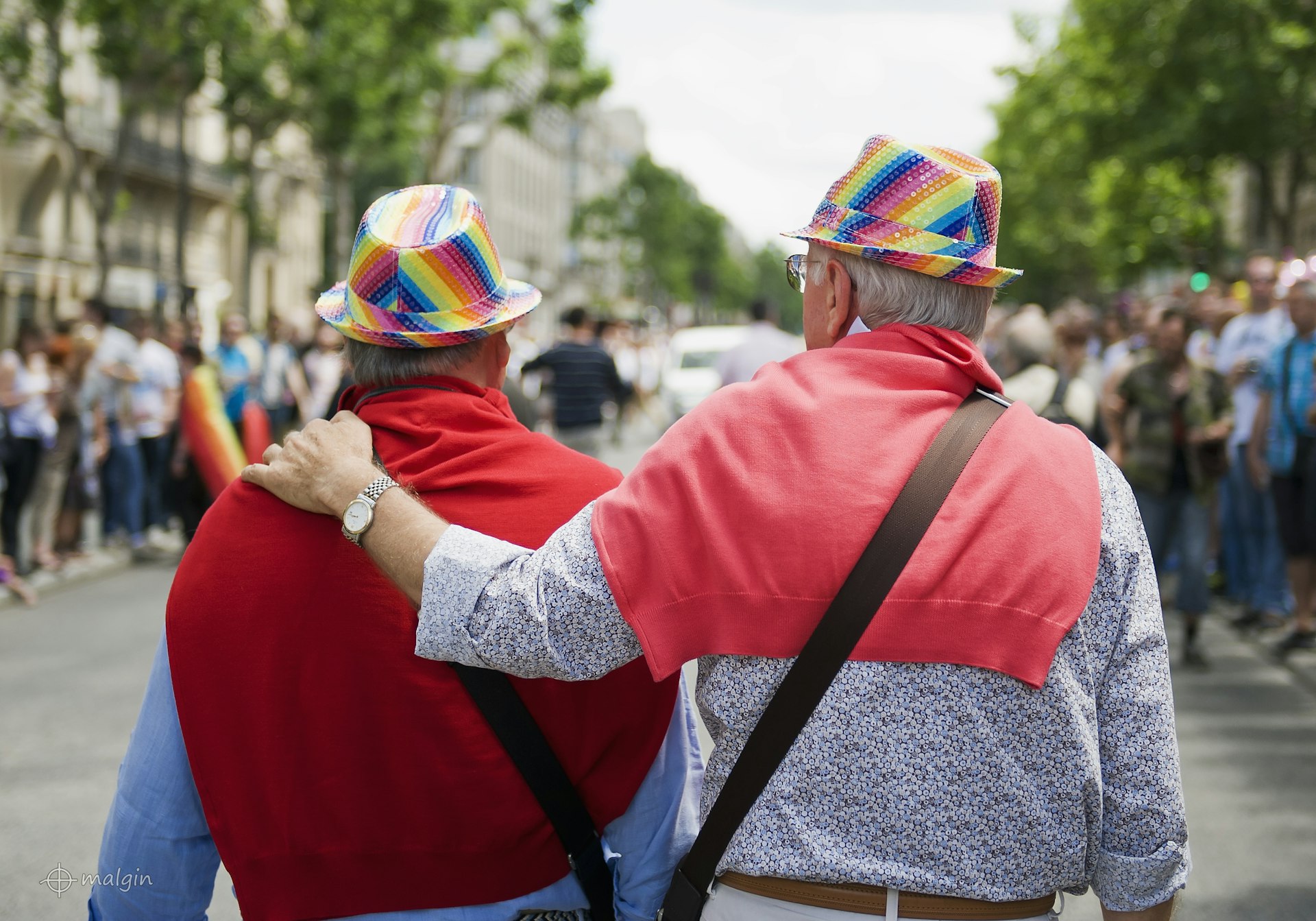
We live in a world where I’ve been unable to call or text a boyfriend when traveling without fearing it will be used as criminal evidence against me. A world where I need to know which instant messaging apps have end-to-end encryption, password protection and disappearing messages so I can catch up with what’s going on at home. It’s having to educate a partner on using them as well, and the potential consequences of not doing so.
We live in a world where being openly gay means coming out every single day to someone new, never knowing whether that will be met with an excited “me too!”, a blasé “that’s cool”, a look of disgust and a hasty exit, physical violence, or something in between.
We live in a world where I watch and listen to the experience of the transgender, gender-nonconforming, genderqueer, non-binary and other members of the LGBTIQA+ community, and see so many disturbing parallels to how gay people were treated earlier in my lifetime that I can’t help but stand beside them.
And yet we decide to live in that world as our true selves. Where we decide to be who we are, to live openly, and to love ourselves and others in the way that we do. As we close out an utterly unprecedented Pride month, and despite everything that we face, we live, love – and travel – in defiance.
You might also like:
The most gay-friendly places on the planet
7 historic LGBTIQ+ US destinations to celebrate Pride
How Black LGBTIQ+ travelers navigate a challenging world

